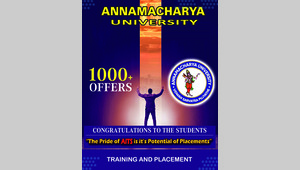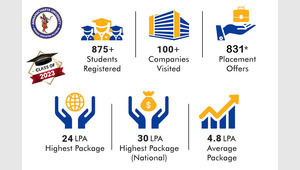Department
Artificial Intelligence & Machine Learning
International Conferences
International conferences held by or affiliated with a private university are significant events that bring together researchers, scholars, industry professionals, and students from around the world to discuss, present, and share their latest research findings and ideas. These conferences are essential for fostering academic collaboration, enhancing the university’s global reputation, and contributing to the advancement of knowledge across various fields.
Organization and Management:
- Planning and Coordination:
- Conference Committee: A dedicated committee is typically formed to organize the event. This committee includes faculty members, administrators, and sometimes students, who oversee various aspects such as program development, logistics, and participant outreach.
- Call for Papers and Abstracts: The conference committee issues a call for papers or abstracts, inviting researchers to submit their work for presentation. Submissions are usually peer-reviewed to ensure quality and relevance to the conference theme.
- Program Development:
- Keynote Speakers: International conferences often feature keynote speakers who are leading experts in their field. These speakers set the tone for the conference and provide valuable insights on the latest trends and challenges.
- Sessions and Panels: The conference program includes various sessions where accepted papers are presented. These can be organized into parallel tracks based on themes or topics. Panels may also be included, where experts discuss specific issues or emerging trends.
- Workshops and Tutorials: In addition to paper presentations, many conferences offer workshops and tutorials on specialized topics, providing hands-on learning experiences for participants.
- Logistics and Support:
- Venue and Accommodation: The university typically provides the conference venue, which may include lecture halls, breakout rooms, and exhibition spaces. Arrangements for accommodation, transportation, and catering are also handled by the organizing committee.
- Virtual and Hybrid Options: With the increasing trend of virtual and hybrid conferences, the university may also provide online platforms for remote participation, allowing for a broader and more inclusive audience.
- Sponsorship and Funding:
- University Support: The university may allocate funds to support the conference, particularly if it aligns with the institution’s strategic goals. This can include covering costs related to venue, logistics, and promotional activities.
- External Sponsorship: Conferences often seek sponsorship from industry partners, government agencies, and non-profit organizations. Sponsors may provide financial support, exhibit space, or in-kind contributions such as technology or services.
- Participant Fees: Registration fees paid by participants help cover the costs of the conference. Some conferences offer reduced fees or scholarships for students and participants from low-income countries.
Impact and Outcomes:
- Publication of Proceedings:
- Many international conferences publish proceedings that include the full papers or extended abstracts presented at the conference. These proceedings are often indexed in academic databases, contributing to the visibility and citation of the research.
- Selected papers may also be published in special issues of academic journals associated with the conference.
- Strengthening Academic Collaborations:
- Conferences often result in new collaborations between researchers from different institutions and countries. These collaborations can lead to joint research projects, co-authored publications, and grant applications.
- They also strengthen the university’s connections with the global academic community, enhancing its international profile.
- Enhancing Student Experience:
- Students who participate in conferences gain invaluable experience in presenting their research, engaging in academic discourse, and networking with peers and experts. This experience can be a significant factor in their academic and professional development.
- Hosting or participating in international conferences also enhances the university’s educational offerings by providing students with exposure to cutting-edge research and global perspectives.
- Advancing University’s Strategic Goals:
- Hosting international conferences aligns with the university’s strategic goals of promoting research excellence, fostering innovation, and enhancing its global reach. The visibility and connections gained from such events contribute to long-term growth and success.
Challenges and Considerations:
- Logistical Challenges:
- Organizing an international conference requires meticulous planning and coordination, particularly when dealing with participants from different time zones, languages, and cultural backgrounds.
- Ensuring that virtual or hybrid components run smoothly and provide a comparable experience to in-person attendance can also be challenging.
- Funding and Sponsorship:
- Securing sufficient funding to cover the costs of the conference is a common challenge, particularly for smaller institutions or conferences focused on niche topics.
- Balancing the need for sponsorship with maintaining academic independence and integrity is crucial.
- Inclusivity and Accessibility:
- Ensuring that the conference is accessible to participants from diverse backgrounds, including those from low-income countries or underrepresented groups, is important for fostering inclusivity and broadening the impact of the event.
- Virtual participation options can help make the conference more accessible, but organizers must also consider factors such as internet connectivity and time zone differences.





